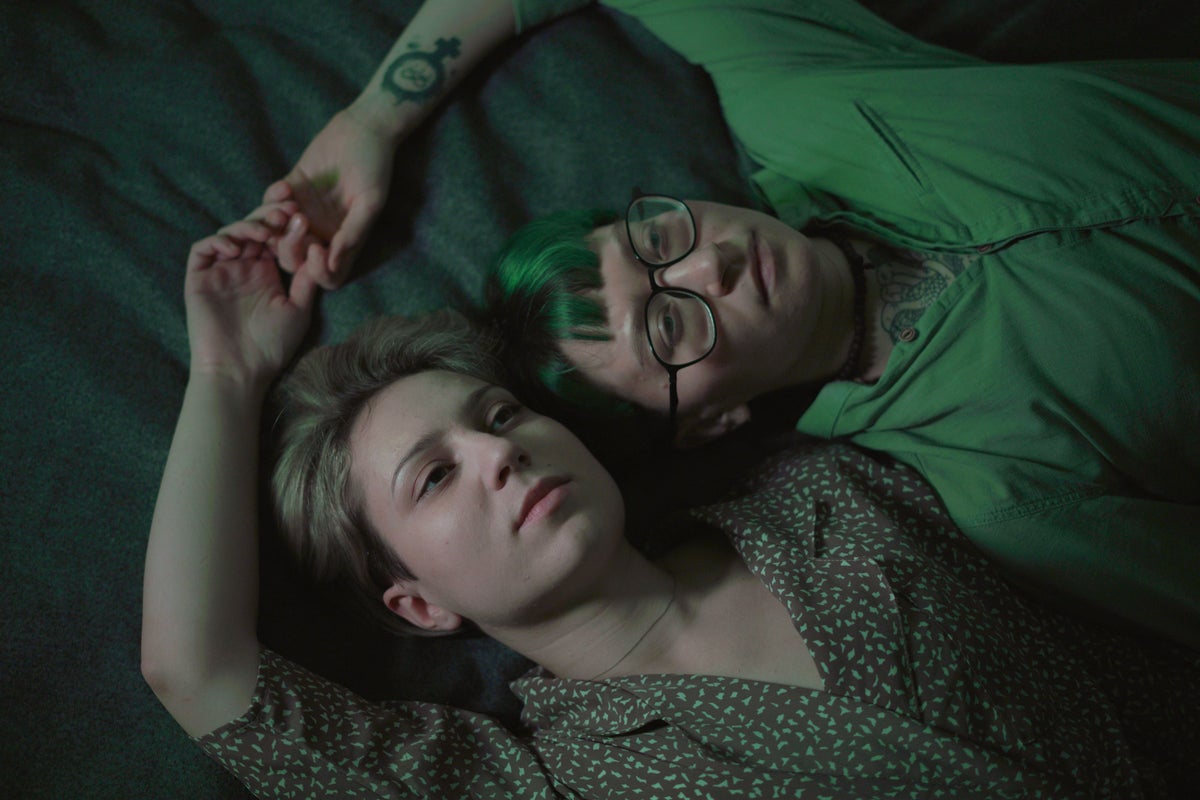
As Russian president Vladimir Putin steers Russia toward becoming a closed-off, conservative society, ruled by “traditional values” and bound tightly to the Orthodox Church, with visions of a “Russian world” in opposition to the decadent, amoral West, the Russian parliament has expanded Moscow’s official discrimination against gays and others of non-heterosexual orientations.
The idea of Russia as a defender of traditional Christian beliefs has been used to justify Putin’s invasion of Ukraine. And it has driven the Russian Parliament to tighten restrictions on LGBT+ “propaganda”.
In December, Putin signed legislation making it illegal to promote or “praise” same-sex relationships, to publicly express non-heterosexual orientations, or to suggest they are “normal” – expanding a 2013 law that prohibited spreading “gay propaganda” among minors. That ban now applies to all ages.
The tougher law is just one way the war in Ukraine has made life worse for LGBT+ Russians. Rights groups and advocates who previously defended sexual and other minorities have been branded as “foreign agents.” Many were driven out of Russia.
Legal experts said the new ban was drafted vaguely to sow confusion and maximise the potential for prosecution and hefty fines against anyone engaging in public discourse that describes LGBT+ people in a positive, or even neutral, way – including in ads, books or online.
According to Human Rights Watch, whose Russian office was shut down in April, the law “perpetuates false and damaging messaging that tries to link LGBTQ people with paedophiles”.
By contrast, Ukrainian President Volodymyr Zelensky has opened the door to legalising same-sex civil unions after the war highlighted a lack of rights and protections for gay soldiers and their partners.
We spoke to members of Russia’s LGBT+ community to understand how the more draconian legislation has affected their lives.
Laura, 21, drag artist
“I’ve been doing drag for over two years now, since I’ve moved to St Petersburg. This is my main job and I’ve been working in a themed club but now the clubs can’t be positioning themselves as clubs for LGBTQ people or drag artists. They had to change logos. There is tons of censorship: what you can’t talk about, joke about, what songs you can’t sing or whose tracks you can’t play in order not to attract unwanted attention from the authorities.
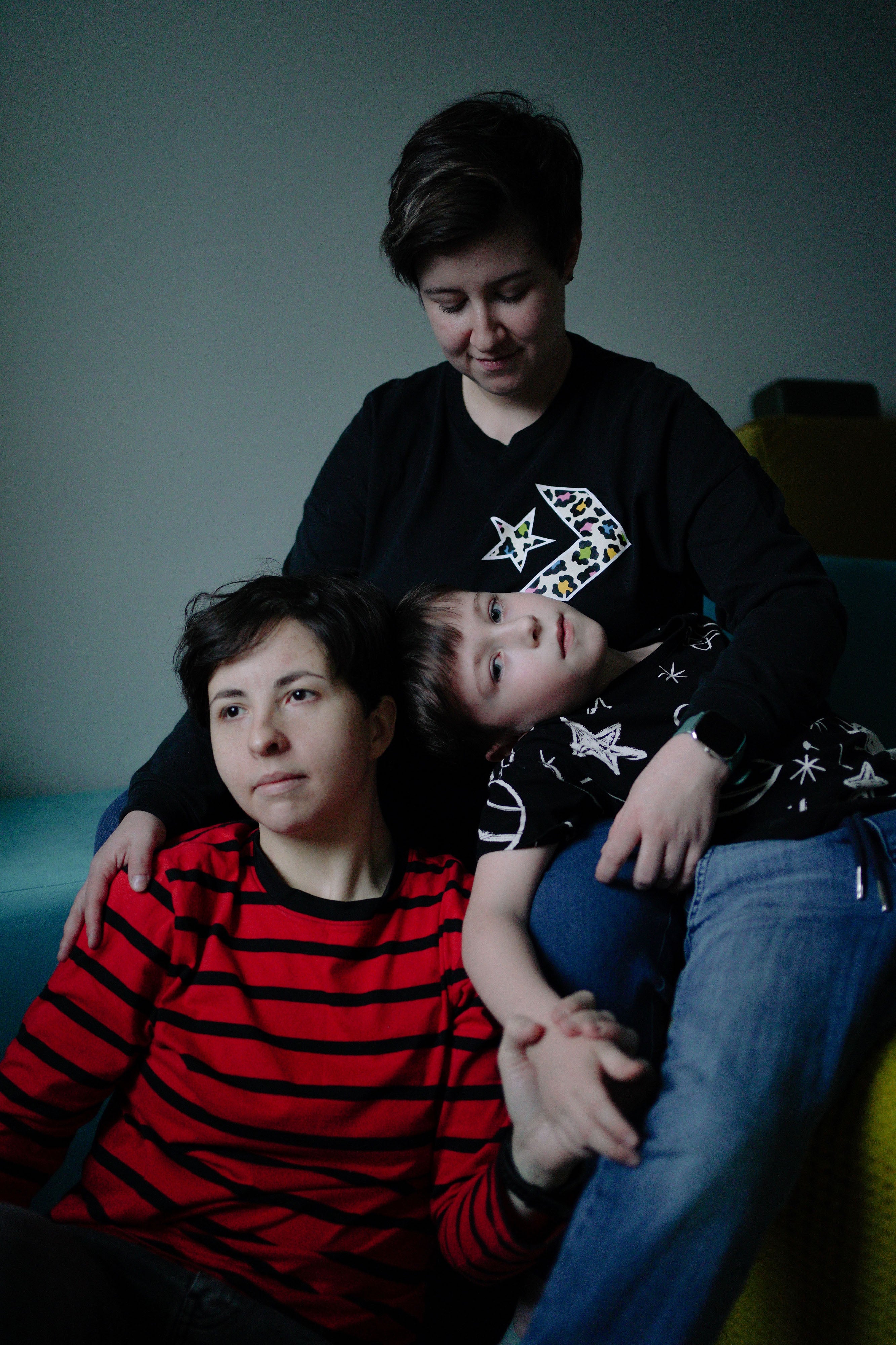
“Some clubs are dropping drag acts. But I’d say censorship is what worries me the most. Before this law there was freedom of speech. Now, for example, if there are a couple of men or a couple of women sitting in the audience, we can’t joke on any sexual topics because this would already qualify as ‘gay propaganda.’ It feels like we are all gathered at a birthday party for a 70-year-old grandma and we can’t take a step outside of what’s allowed.”
Yaroslava, 33, and Yana, 32, owners of an online marketing company
Yaroslava: “I’ve told Yana at the very beginning of the war that there is definitely going to be a new wave of aggression toward LGBT people to divert attention, which is so in character for Russia. You know, when the initial 2013 law was passed there was outrage and a huge wave of support for queer people in Russia. This year, it was nothing of the sort. People either want to climb into a closet to avoid being noticed or are thinking of ways to run away.”
Yana: “In Russia, we are also the minority within the minority, as we are an openly lesbian couple raising a child. We are under greater pressure because we have a minor in our family, so we already step outside the propaganda law and some ‘activist’ can call child protective services on us. We have to send him to a private kindergarten because we’ve had bad experiences in the government ones. But even in a private one it’s enough to have one inadequate parent who can complain about us.”
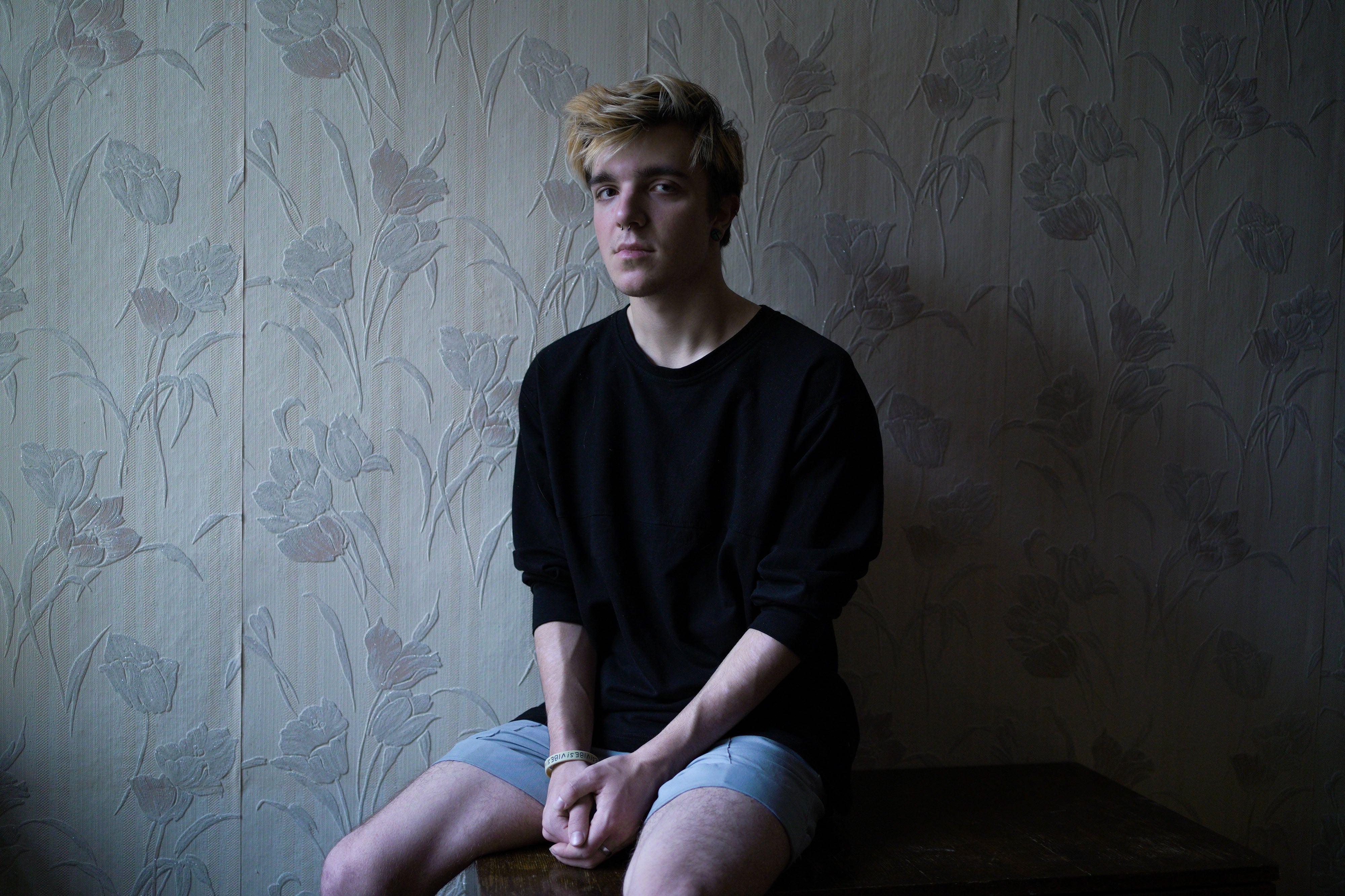
Sasha, 19, nonbinary activist
“I’m a nonbinary person, I write and translate texts for SHeG, a St Petersburg-based community for nonbinary people. I’ve felt like over the past decade the situation with LGBTQ people in Russia has actually been improving. The community became more open and so on. I don’t know yet whether this law would de facto change a lot and I haven’t honestly felt its effects on my personal life yet. But it’s very sad that it’s already affecting things like literature, for example, as they have to remove certain things.”
Leva, 35, salon owner, and Ksenia, 31, software tester
Leva: “I’m a trans, nonbinary person, a feminist and a lesbian. I have a hair salon that is openly positioned as queer, and most of my clients are queer. I have a lot of books and visual art that cover LGBTQ themes.
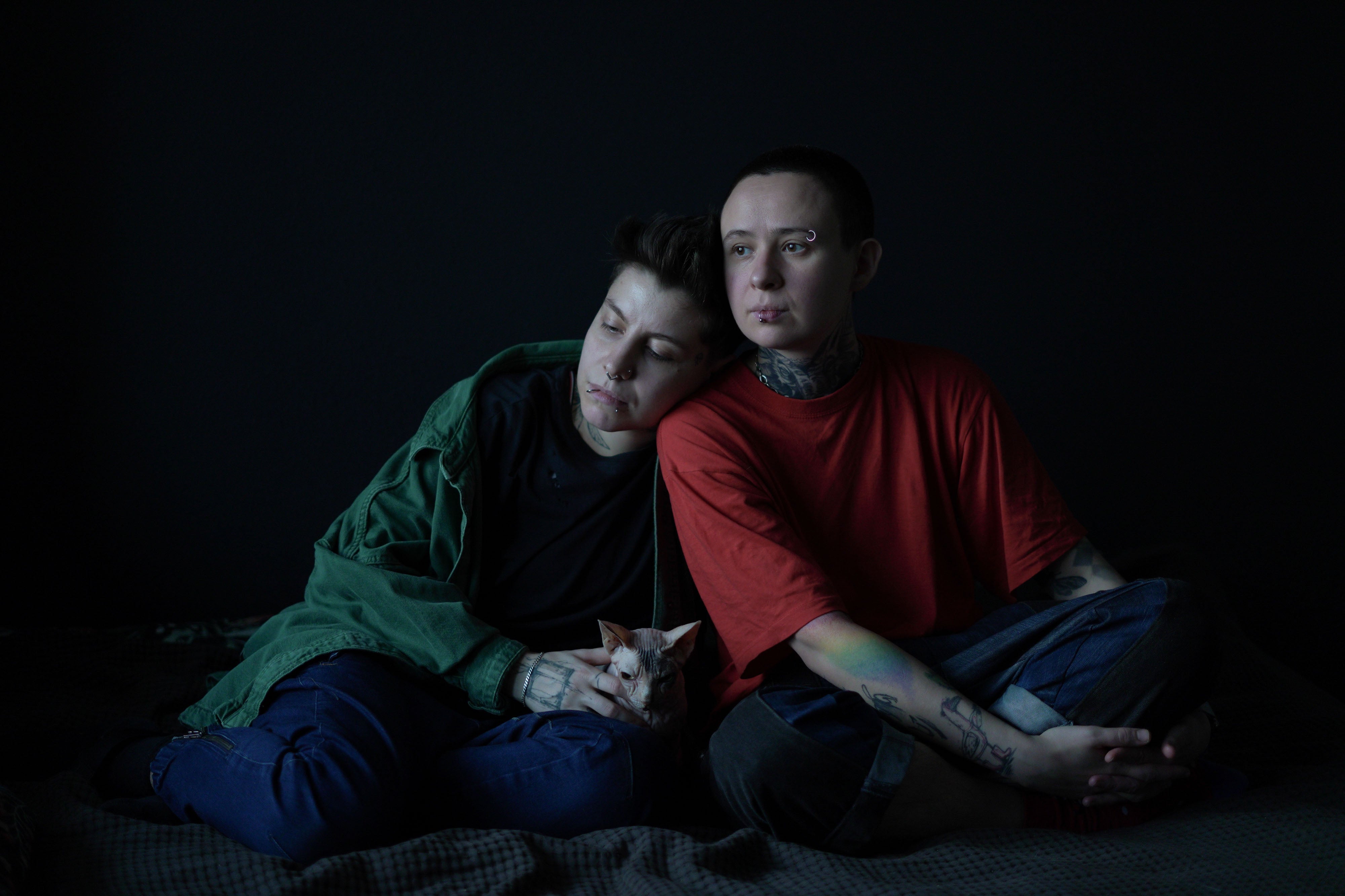
“My partner is really worried for me. There is more tension within our family, I have a lot more fear as I’ve realised that the danger is more real than it has ever been. I’m worried that someone will report me. I fear getting fined or going to jail for this. But I am not changing the way I interact with my clients. I openly talk about my life, their life and I don’t think it’s right to hide anything about myself.”
Ksenia: “I’m nonbinary and openly lesbian. From the moment I heard the discussions about this law, I had no doubt that it would be passed. This law equates pedophilia with homosexuality and cements hatred and intolerance against us in society. I haven’t stopped holding my girlfriend’s hand in public or hugging her but every time I do I can’t help but think that if someone really wanted to they could report us and the law will definitely be on their side. But I don’t want to pretend that I don’t exist.
“These kinds of laws are always passed to broaden support for those in power and specifically appease the older population. It’s clear that lives of queer people will be worse as this law basically tries to say that we are perverts, and that greenlights violence and homophobia.”
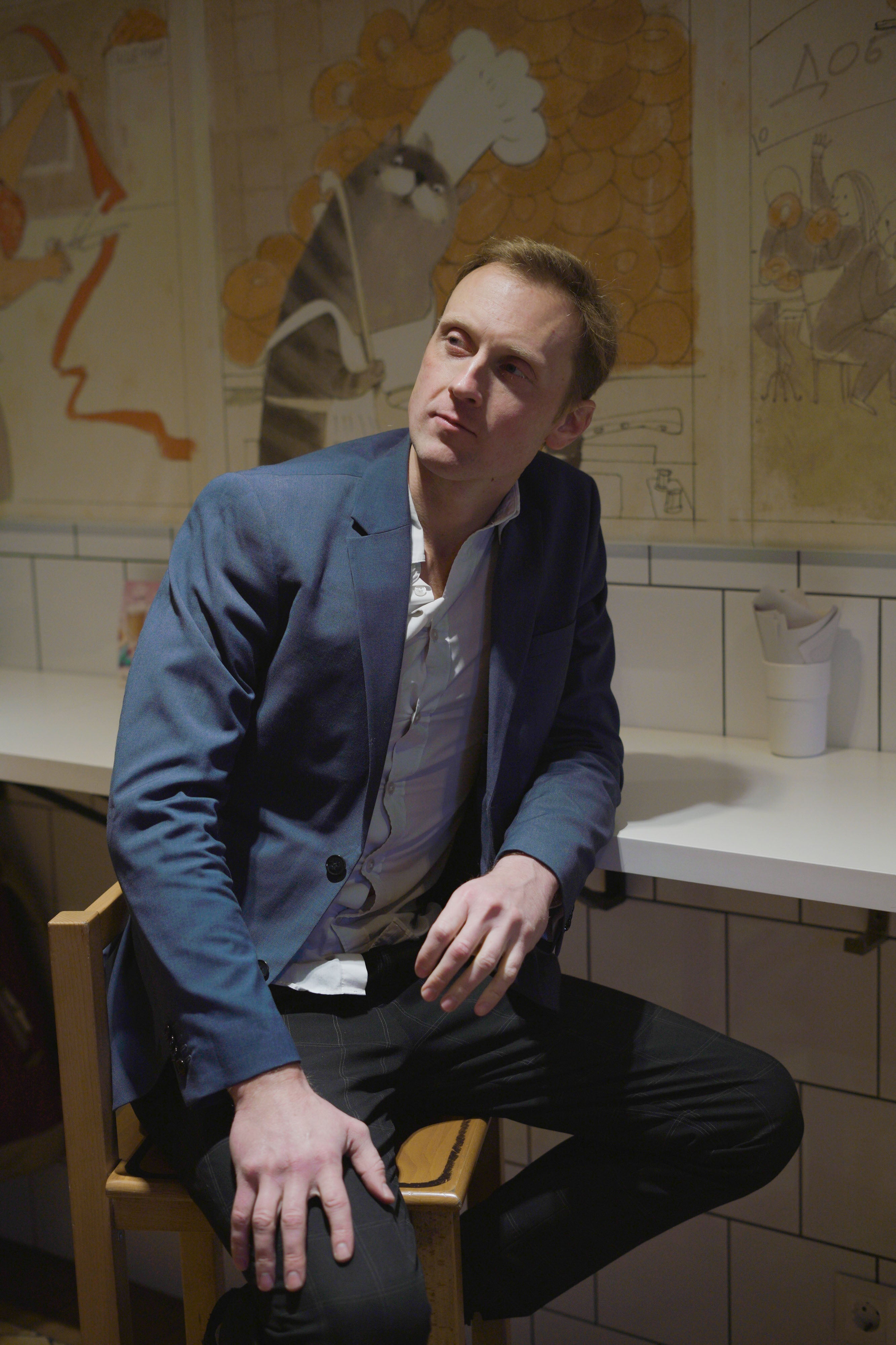
Sergei Troshin, 40, an openly gay lawmaker in St Petersburg
“I came out quite recently, this summer, but it gave me a certain level of internal freedom. I’ve been talking about LGBTQ issues even before coming out but now my work in this area is perceived in a more justified way, I guess. I’ve gotten many letters of support from people across the country which inspired me a great deal. That’s when I decided for myself that I would still stay in Russia, because I feel some sense of responsibility for these people. On the other hand, there is a level of anxiety because I’ve heard that certain homophobic people want to harm me in some way. But thankfully that has happened yet.
“The day parliament approved the bill in the second hearing, I wrote a post on my Telegram blog denouncing this discriminatory and homophobic law. A few days later, another municipal deputy in St Petersburg announced that he reported me to the authorities, asking to launch a probe in accordance with this anti-propaganda law, claiming that the people of Russia are outraged by this and urging others to write similar accusations. So far I haven’t heard from the prosecutor general’s office but I’ll fight this in court if need be.
“The current Russian government took a clearly anti-Western vector and this law is designed to appease the base, the conservative part of society.”
Yulia, 30, creator of “Psyche for help” online service, and Kris, 32, chef
Yulia: “It was already a really worrying time as most LGBTQ foundations and rights groups left Russia after Feb. 24, and the passing of this law in December felt almost like the final nail in the coffin.
“It’s become very difficult to be a public LGBT person. People began to self-censor. The law itself is very confusing and unclear but everyone is panicking, deleting posts and so on. Another thing I noticed is how it affected publishers and bookstores, which now have to hide covers of books on LGBT themes. And the third thing is that I worry they will close any remaining help centers for queer people.
“Most of my friends are LGBTQ activists and it’s especially dangerous and scary for them to remain in Russia. Kris wanted to leave back in February but I am not so quick, I need more time, but after this law I felt I definitely want to move away.”
© The Washington Post







